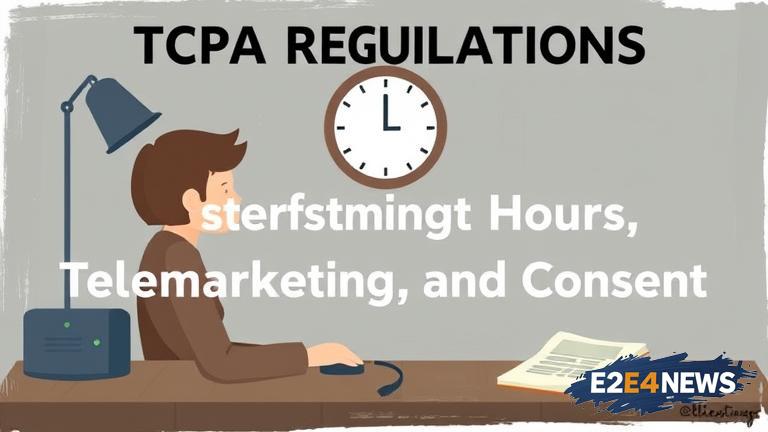The TCPA is a federal law that was enacted to protect consumers from unwanted telemarketing calls and messages. The law requires telemarketers to obtain prior express consent from consumers before making certain types of calls or sending certain types of messages. One of the key provisions of the TCPA is the requirement that telemarketers respect ‘quiet hours’, which are hours during which telemarketing calls are prohibited. Generally, quiet hours are between 9pm and 8am, local time. Telemarketers are also required to maintain a ‘do-not-call’ list, which is a list of consumers who have requested not to be contacted by telemarketers. The TCPA also regulates the use of automated dialing systems and prerecorded messages. Telemarketers are required to identify themselves and the company they are representing, and to provide consumers with an opportunity to opt-out of future calls. The TCPA applies to a wide range of industries, including telecommunications, finance, and healthcare. Companies that violate the TCPA can face significant fines and penalties, including class-action lawsuits. In recent years, there have been several high-profile cases involving TCPA violations, including cases against major companies such as Facebook and Wells Fargo. The Federal Communications Commission (FCC) is responsible for enforcing the TCPA, and has issued several rulings and guidelines to help clarify the law. Despite these efforts, the TCPA remains a complex and often confusing law, and companies must be careful to ensure that they are in compliance. The TCPA has been amended several times since its enactment, and is likely to continue to evolve in response to changes in technology and consumer behavior. Overall, the TCPA is an important law that helps to protect consumers from unwanted telemarketing calls and messages, and companies must take steps to ensure that they are in compliance. The law has been successful in reducing the number of unwanted telemarketing calls, and has provided consumers with greater control over their personal information. However, the law is not without its challenges, and companies must be careful to navigate its complexities in order to avoid fines and penalties. By understanding the TCPA and its requirements, companies can help to ensure that they are in compliance and avoid potential legal issues.
